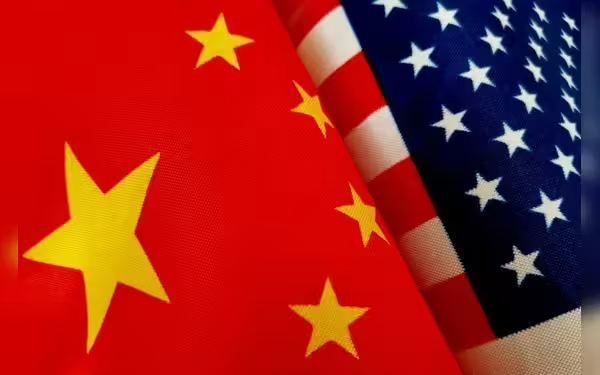Saturday, November 16, 2024 03:17 PM
US-China Human Rights Tensions Escalate
- Over 100 countries support China at UN Human Rights Council.
- US lawmakers push for tougher stance on China.
- China's human rights progress in Xinjiang highlighted.
 Image Credits: thefrontierpost
Image Credits: thefrontierpostThe US faces global skepticism over its human rights claims against China, as over 100 countries express support for Beijing at the UN.
The ongoing debate surrounding human rights in the Xinjiang Uygur autonomous region has become a focal point of international relations, particularly between the United States and China. For years, the US has accused China of committing human rights violations against the Uygur people, claiming that there are instances of "arbitrary and discriminatory detention." However, these allegations have been met with increasing skepticism on the global stage, as many countries rally in support of China, challenging the narrative pushed by the US and its allies.
During the 57th session of the United Nations Human Rights Council in Geneva, over 100 countries expressed their backing for China, directly countering the criticisms leveled by the US. This overwhelming support highlights a significant failure of the US-led campaign to tarnish China's image. Countries such as Cuba, Uganda, Venezuela, and Gambia have all voiced their opposition to the politicization of human rights, emphasizing the importance of respecting the sovereignty and internal affairs of nations.
China's progress in human rights protection, particularly in Xinjiang, has been notable. The region has seen social stability, economic growth, and harmony among various ethnic and religious groups. The rights and interests of all ethnic communities in Xinjiang are reportedly safeguarded, and the achievements in human rights are evident to those who approach the situation with an unbiased perspective.
Despite this, some US lawmakers continue to push for a tougher stance against China, alleging oppression of the Uygur people. Recently, Congressman Ritchie Torres criticized the Biden administration for not providing a report on China's treatment of Uygurs, while the House of Representatives passed a measure aimed at limiting contacts with Chinese officials accused of oppression. The US government had previously enacted the "Uyghur Forced Labor Prevention Act" in 2021, imposing sanctions on China under the guise of human rights concerns.
However, one must question the sincerity of the US's commitment to human rights. If the US is genuinely concerned about the rights of Muslims, why does it continue to support or provoke conflicts in the Middle East, resulting in countless innocent casualties? Why does it overlook the historical injustices faced by Arab nations and fail to support Palestine's bid for full UN membership? These questions, raised by Chinese Foreign Minister Wang Yi, shed light on the underlying motives of the US's human rights rhetoric.
The support China has garnered from numerous countries indicates that the US's efforts to criticize China on human rights issues may be misguided. It is essential for nations to engage in mutual respect and cooperation rather than politicizing human rights for strategic gains. As the global landscape continues to evolve, it is crucial for all countries to prioritize genuine dialogue and understanding over divisive tactics that only serve to deepen existing rifts.













